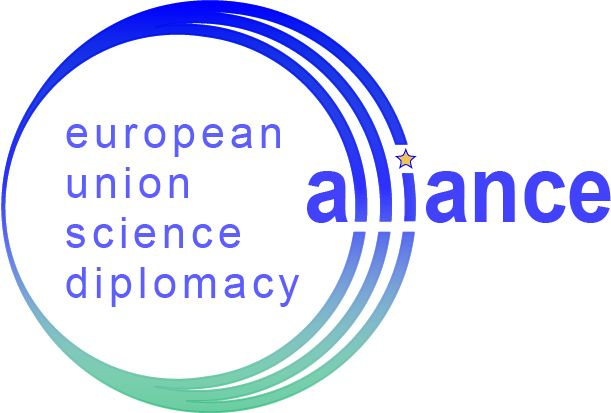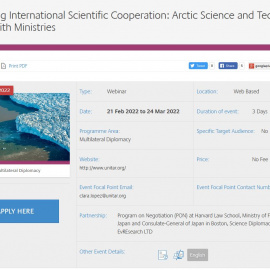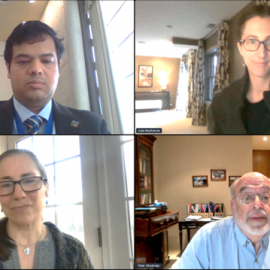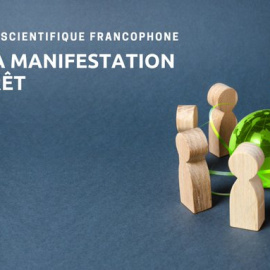The World Academy of Sciences is a global networking partner of the European Union Science Diplomacy Alliance. It implements a lot of trainings on the topic but also is regarded as a science diplomacy instrument for academies of sciences in itself.
In November 2021, TWAS convenes its first all-virtual conference with the title “Advancing Frontier Science, Technology and Innovation for SDGs in Developing Countries” featuring award ceremonies, lectures by high-level researchers, a ministerial session and symposia on key issues of our time. It is upon invitation, but you can follow updates from the TWAS twitter account.
The regular AAAS-TWAS Science Diplomacy Course is another activity to be highlighted. This year’s participants learned about the issues of their uncertain times and pointed them towards some solutions for the future, through collaboration and a scientific perspective, as TWAS reports. It was the eighth course of the initiative which started in 2014. Overall it already trained 350 scientists, diplomats and policy experts from more than 70 countries. Yet, this years course was different as it invited explicitly pairs of scientists and policymakers to apply. They were in particular also addressed by South Africa’s Minister of International Relations and Cooperation Naledi Pandor (who is also winner of the 2016 AAAS Award for Science Diplomacy) with a keynote. In the article on TWAS website, her key message is outlined: “More than ever before, global solidarity and multilateralism are needed to build a world where nobody is left behind, and science diplomacy will be part of that formula.” She also describes that
“For me, the COVID-19 pandemic has been a very interesting interlock between science and diplomacy, and I find it a fascinating study of the area of the course that you are focusing upon,” Pandor said to attendees. “But our world, as always, needs better and better science diplomacy and science advice, and so, I do think a course such as this one is extremely important and I think the two organizations—TWAS and AAAS—are to be congratulated for investing in training the next generation of science diplomats.”
She furthermore highlights the importance of scientific advice and the need for international cooperation and collaboration to achieve the best science building on scientific values related to integrity such as objectivity, honesty, fairness, accountability and stewardship. She also draws attention on inclusiveness and diversity and in particular the importance to bring women into male-dominated fields.

Picture source: TWAS (https://twas.org/article/science-diplomacy-more-important-ever)
Global networking activities by The World Academy of Sciences




